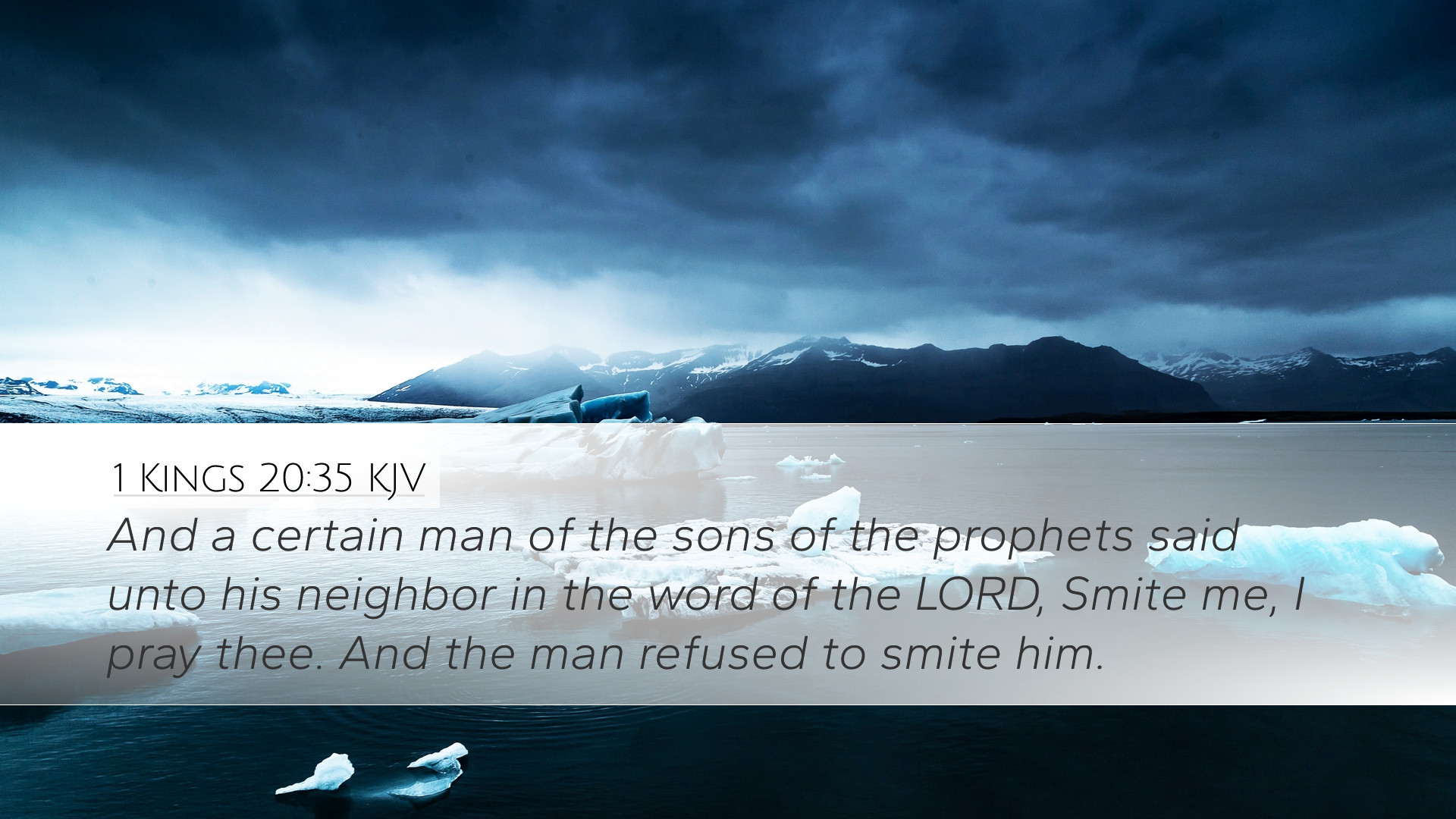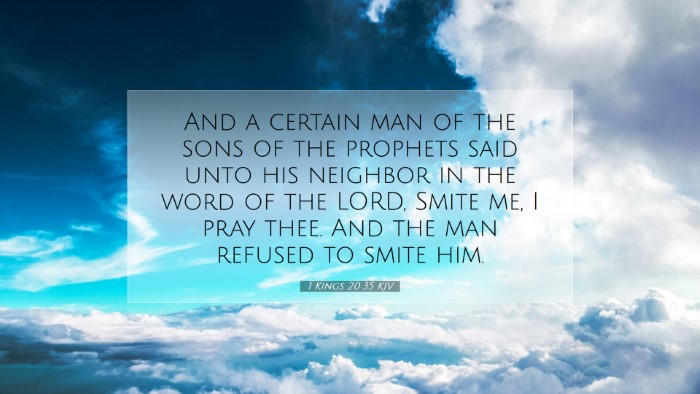Commentary on 1 Kings 20:35
Verse: 1 Kings 20:35 (KJV)
"And a certain man of the sons of the prophets said unto his neighbour in the word of the LORD, Smite me, I pray thee. And the man smote him, so that in smiting he wounded him."
Context and Background
This verse is situated within the narrative of 1 Kings, which chronicles the history of Israel's monarchy. Chapter 20 sees a confrontation between King Ahab of Israel and Ben-Hadad, the king of Aram. In this context, prophetic instruction plays a crucial role, emphasizing God’s sovereignty over the events concerning Israel and the nations.
As the events unfold, the prophet under God's direction finds himself in a situation that seems perplexing; he requests to be smitten. The significance of this act serves not only as a prophetic symbol but also as a means to convey a message to King Ahab.
Commentary Insights
1. The Role of the Prophet
The request made by the prophet to be smitten raises questions about obedience and the prophetic office. Matthew Henry notes that the life of a prophet often involved both spiritual and physical acts to illustrate divine messages. The act of being smitten symbolizes the trials that God’s messengers may endure in fulfilling His will.
Albert Barnes elaborates on this point, indicating that prophets often demonstrated their messages through dramatic, sometimes uncomfortable actions. In doing so, they embodied the words and the mission they conveyed.
2. The Symbolism of the Smiting
The physical act of being struck can also be seen as a form of identification with the suffering that God’s people may endure. Adam Clarke comments on the necessity of this action as a means to authenticate his prophetic message. The prophet’s wound serves as an external sign of the impending judgment upon Israel should Ahab fail to heed God's words.
3. The Importance of Obedience
In reflecting on this narrative, one can observe the themes of obedience to God’s command. The neighbor’s readiness to strike the prophet highlights the principle of submission to divine authority found throughout scripture. Matthew Henry emphasizes that despite the potential for personal discomfort, true obedience often requires us to carry out tasks that may seem unusual or difficult.
4. God's Sovereignty
This passage also reinforces the theme of God’s sovereignty in directing the course of events in Israel. The prophet's request and the resulting act are orchestrated through God's providence. Albert Barnes underscores that nothing happens in isolation; all events serve a purpose within God's overarching plan for redemption and sovereignty.
5. Application for Today's Believer
For contemporary believers, the story of the prophet and the command to be struck can serve as a powerful reminder of the call to obedience, even when it leads to discomfort. Paul encourages us through his own example, urging believers to “be strong in the Lord and in the power of his might” (Ephesians 6:10), which aligns with the idea of undergoing trials for the sake of the Gospel.
Moreover, this passage invites reflection on our role within God’s prophetic tradition. As followers of Christ, we are called to bear witness to the truth, even if it requires sacrifice. Adam Clarke suggests that the willingness to endure hardship for God’s message is a hallmark of genuine ministry.
Conclusion
In summary, 1 Kings 20:35 encapsulates the broader themes of prophetic action, obedience, and God’s sovereign plan. The events surrounding this verse provide rich insights into the nature of God’s calling on our lives and the importance of remaining faithful, even in challenging circumstances.
As we reflect on the narrative, let us remember that our actions, much like the prophet's smiting, can serve as powerful testimonies of God’s truth in a world that often resists it.


